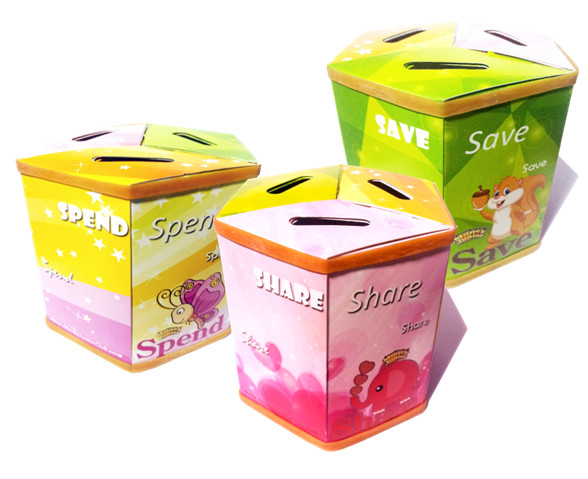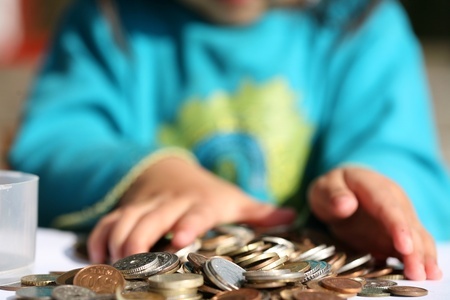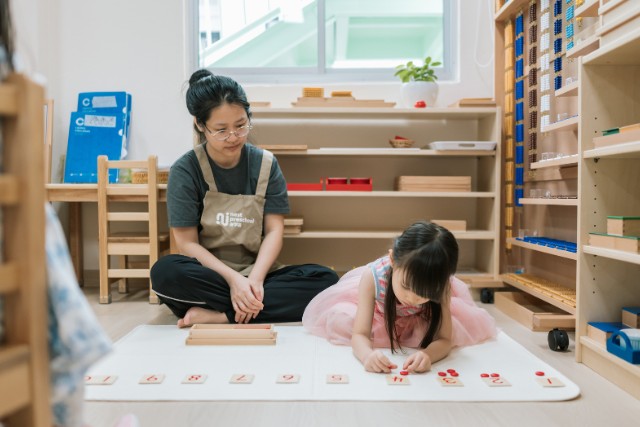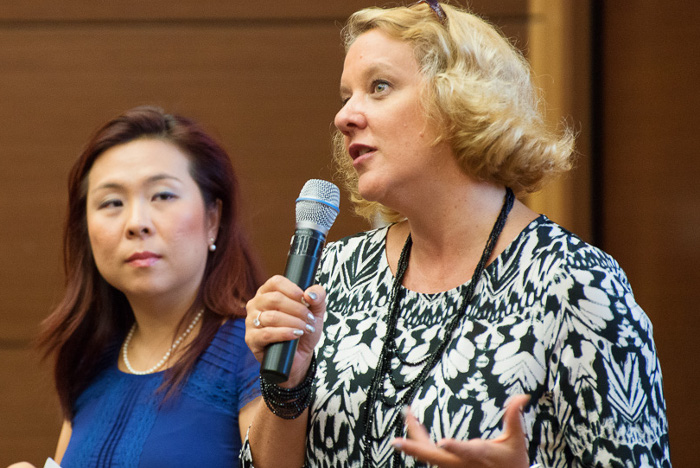How much allowance should you give to your kids? Spend, save or invest – which of these concepts should you start teaching your child first? Money Coach Ernest Tan shares practical tips and tools that empower you to raise your child to be financially savvy.

It’s not all about Grades
“I was a top student in my school. I’ve got a Masters Degree. I am really hard working. I got a job in a prestigious company. So, how come I am not as rich as you?”
Although educational qualifications and hard work is really important, it has little to do with being able to generate sustainable wealth. Having the skills to achieve good grades and perform really well in your job does not mean you possess the skills to become a money master.
The ability to be a money master is also a skill on its own; a set of positive money habits and attitudes that can be acquired. Just like cooking and driving are skills we learn over time. The trouble is schools don’t teach us enough skills to become financially successful.
As a parent, do you have the mindset, habits and skills to raise junior to be financially savvy?
First Lesson: Spending
Who taught you how to spend and how did you learn it?
From as young as two years old, children learn almost everything from mimicking their parents, and this includes how you manage your money. For example, a trip to the supermarket to buy groceries shows your kids how you spend and handle your cash.
Here’s another fact to ponder on. Ever wondered why in some families, the parents have always been struggling for money for many generations? I believe we model after our parents’ money behaviours, beliefs, patterns and attitudes. Since our parents were not imparted with good money habitudes or money management skills, they did what they could by working very hard, and struggled to have money to bring us up.
If you want to raise your kids to be money smart, you need to set yourself as a good role model by understanding and teaching the following concepts – Earning, Saving, Spending, Sharing and Borrowing
Here are important points to note:
Money Jars

Kids learn much faster when the lesson is fun and visual. As soon as kids are given an allowance, I encourage parents to give each of their kids a set of money jars (kid version) and also show them their own money jars (adult version).
Show your kids how to portion part of their allowance into their money jars whenever they receive an allowance. Have your kids to set goals on each of the money jars, i.e. Saving Goal, Spending Goal and a Sharing Goal.
Every time your kid adds money to the savings jar, count together with them on how much they have saved. Talk to them about how much more they need to reach their goal and the estimated time needed to achieve it.
Giving Allowance
When giving your kids an allowance, especially for young kids who are new to handling their own money, consider giving them a small amount of money, and help them portion the realistic amount of money into their different money jars.
“It costs $1 less and it tastes the same!”
As your kids grow a little older, include your kids in the family financial decisions process. For example, explain to them the reason why Mummy decided to buy Brand A fruit juice instead of Brand B fruit juice.
Never too young to learn about investments

Teach your kids about compound interest as soon as the school teaches them about simple interest in their mathematics subject. Have your kid use an online compound interest calculator to see how much money they can acquire if they invest in it. According to the interest rate, how quickly does the money grow? Research shows that using specific numbers in your discussions is more effective than merely describing the concept of compounding to your kid.
Delayed Gratification
Inspire your kids to set long term spending goals for something more expensive. For example, if your child has a habit of buying a snack after school every day, he may decide if he’d rather save all that money on snacks to buy an Xbox instead. The concept of delayed gratification is enforced when children go through the process of thinking about what they have to give up in order to purchase a bigger ticket item.
The Habit of Giving Back

Have discussions and talk about charity with your child. Bring them along when you make a certain donation. The more you expose your children to acts of generosity; it slowly becomes ingrained and a practice your child may adopt as they grow into adulthood.
According to developmental psychologist Marilyn Price Mitchell, children who perform acts of kindness experience increased well-being, popularity and acceptance among peers. This, in turn, leads to better classroom behaviour and higher academic achievement.
Ernest Tan is a money coach, author of the book ‘Raising Financially Savvy Kids’, Founder and Managing Director of Ernest Resources Agency Pte Ltd and Jopez Academy; a financial education company that coaches children and their parents on financial literacy, money and life mastery through its proprietary training courses and board game.
For more information on how you can develop positive habits to help kids become future money masters, read ‘Raising Financially Savvy Kids’. Now retailing at SGD$22.90, you can grab a copy of the book at all major bookstores such as MPH, Popular, Kinokuniya and Times.
This was first published in Parenting with Love: Preparing your child for Primary School
* * * * *
Like what you see here? Get parenting tips and stories straight to your inbox! Join our mailing list here.
Want to be heard 👂 and seen 👀 by over 100,000 parents in Singapore? We can help! Leave your contact here and we’ll be in touch.






















































